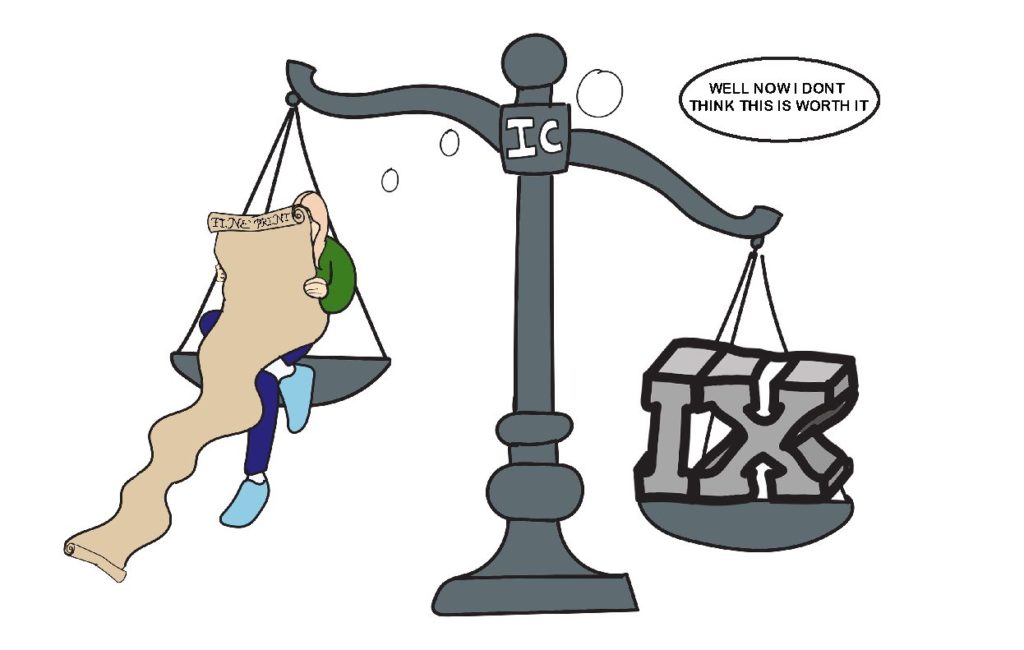The collegiate justice system continues to fail students as non-comprehensive policy succeeds and supportive representation from the Title IX office remains in question.
Failure is an inherent part of seeking justice within the legal system. However, when it comes to the benefits and limitations Title IX can afford students, critical evaluation of their needs and possible options must be heavily considered. When dealing with matters of non-consensual events, the inability to comprehend and consent to legal policies due to a lack of understanding lays bare the contradiction within our legal systems.
While the Title IX office does try to offer support for all students across campus, it may not be the support desired or required for every student and their individual experience. The option to have Title IX policies should remain intact, but the speed at which students decide to use them must be slowed and properly understood. Whether students choose to use them or not is up to the student. Whether the student decides for their story to be a recorded number for an institutional statistic should be their choice.
Before approaching the Title IX office with such delicate, intimate matters, students who experience sexual violence must ask themselves, “Will this help or hurt my situation? Am I mentally strong enough for potential legal action, reliving trauma, gathering sufficient evidence of sexual misconduct and the possibility of not winning my hearing? Is the courtroom the best place for me to heal?” Survivors should never be made to feel victim to the reality of a police investigation and unsupportive policies.
The Title IX office currently has only two main staff members — Title IX Coordinator Linda Koenig and Leonardo Wise, Title IX investigator and prevention specialist — and unsurprisingly, the demand for educational opportunities remains high. A larger Title IX staff would allow the office to create and facilitate more dialogues on campus as demystifying sexual violence against all bodies is essential to a comprehensive knowledge-set for survivor advocacy. Creating room for the LGBTQ+ community and communities of color at the same rate as their cisgender, straight or white peers, will enhance levels of comfort and confidence when engaging in the taboo.
While educational opportunities for understanding that many experiences outside the typical definition of sexual assault exist, the conversation does not just stop at what counts as sexual misconduct and to whom it occurs.
All Title IX policies are made available to the public, but the college does little to promote visibility around these policies. Section 2.1.4 Reporting Sexual Misconduct of the Title IX policy manual states: Officials With Authority (OWA) as defined by Title IX, and are required to report incidents to the Title IX coordinator. OWAs include the Title IX office, Office of Student Conduct and Community Standards, Office of Public Safety, Office of Residential Life, Office of Student Affairs and Campus Life and the Ithaca College Senior Leadership Team. While this information is publicly available, it is more difficult to find and requires searching in the policy manual or scouring the college’s website to locate. A student who is in distress after experiencing sexual violence may not always be in the right mental state to decode the policy manual or website, and could easily disclose their experience to an OWA, who would have to report to Title IX against the student’s will.
Students who are faced with the unfortunate reality of reporting or being required to report an act of sexual misconduct deserve the space and time to heal, to process, to understand their current reality versus the reality of what legal proceedings would mean to their individual experience. The college must do better so survivors can have a comprehensive understanding of their choices. Afterall, failure of choice and consenting without full understanding is at the center of each Title IX case — inaction to educate on policy is a cruel way to exacerbate what should have never occurred in the first place.
The failures of Title IX are the fault of the system it must operate within. Legal jargon and a formal environment are not conducive to supporting students. And when looking toward alternative options based on restorative justice to humanize the process, the restrictive space federal regulations place on Title IX becomes a barrier. Perhaps there will never be a perfect way to handle sexual assault cases within Title IX and the legal system. Students should continue to find support from services like the advocacy forging community outside the constraints of institutional powers and its limitations.














